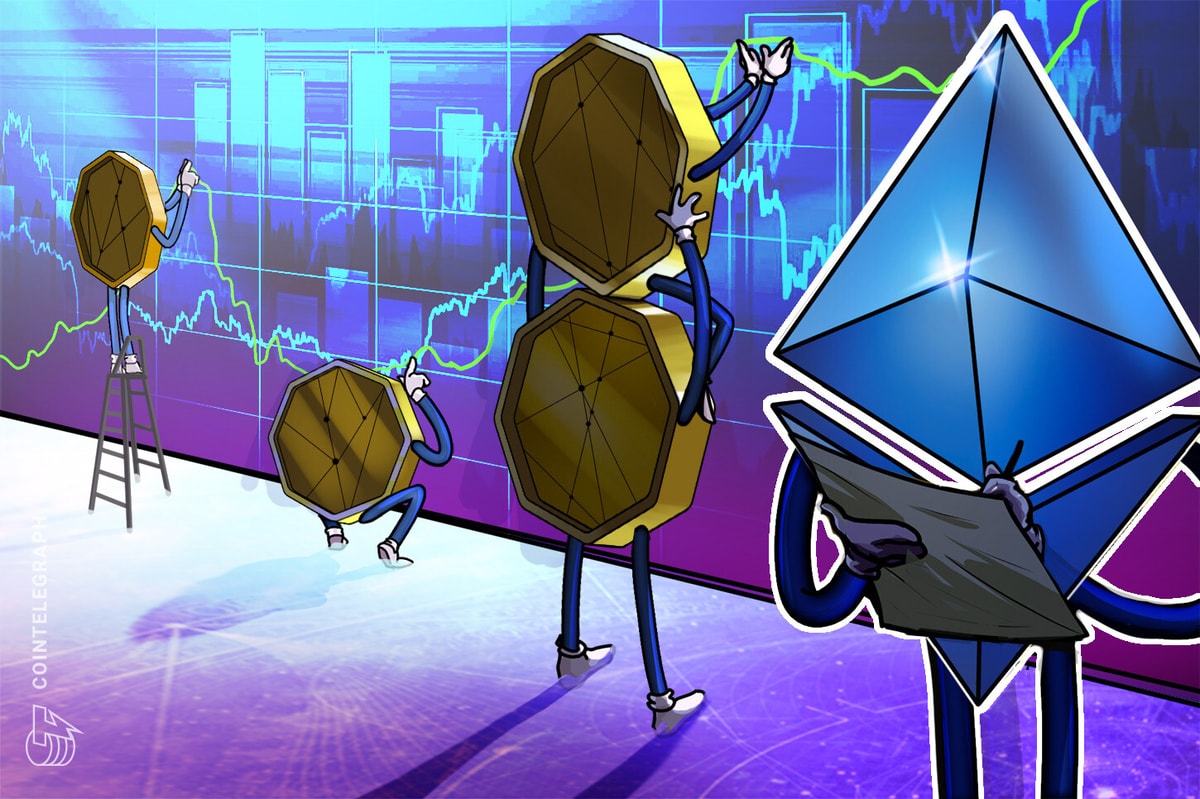Five spot Ethereum exchange-traded funds (ETF) will begin trading on the Chicago Board Options Exchange on July 23, “pending regulatory effectiveness,” CBOE announced on July 19.
On May 23, the United States Securities and Exchange Commission (SEC) approved rule changes permitting the listing of several spot Ether (ETH) ETFs. However, before the new products could begin trading, the regulator still had to sign off on each fund issuer’s respective S-1 registration statements.
The five spot Ether ETFs set to commence trading are the 21Shares Core Ethereum ETF, Fidelity Ethereum Fund, Invesco Galaxy Ethereum ETF, VanEck Ethereum ETF, and Franklin Ethereum ETF.
In an effort to gain an early market advantage, virtually all of the ETH ETF issuers have announced plans to temporarily waive or discount fees to compete for market share once the products begin trading. Industry analysts have told Cointelegraph that Ether ETFs could attract billions in net inflows in the months following the launch.

Related: BlackRock sets spot Ether ETF fee at 0.25% amid rush of S-1 filings
Ethereum supply crunch coming?
Increased demand from institutions looking to fill their exchange-traded funds with Ether could spark a supply crunch. The Ethereum Exchange Reserve, a metric tracking the amount of Ether available for purchase on cryptocurrency exchanges, is at multi-year lows.

A recent Kaiko report also touched on Ether’s 1% market depth and suggested that lower liquidity could spark increased price volatility, sending the price of Ether higher in the face of increased demand and potentially outperforming Bitcoin (BTC) in percentage terms.
Institutional analyst Tom Dunleavy believes inflows into Ethereum ETFs could hit $10 billion this year and see as much as $1 billion in capital flows per month. In a recent statement, the asset manager told Cointelegraph, “I expect a very positive price impact, sending us to new all-time highs by early Q4.”
Chief investment officer of Bitwise Matt Hougan shared similar sentiment, explaining that Ethereum stakers were not as intent on selling their assets the same way Bitcoin holders were. The Bitwise executive claimed that 28% of Ether's supply was already sequestered and cited increased withdrawals from exchanges to colder forms of storage as another sign that Ether holders expect future price appreciation.
Magazine: Ethereum restaking: Blockchain innovation or dangerous house of cards?
Update (July 19, 11:50PM UTC): This article has been updated to include four more spot Ether ETFs will launch trading on the same day.











